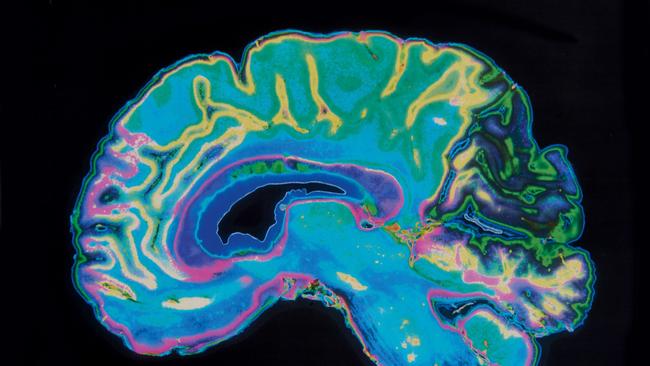Brain changes linked to later depression in world-first study
More than 100 teenagers had their brain scans tracked throughout high school. The results could change our approach to depression.

Anxiety & Depression
Don't miss out on the headlines from Anxiety & Depression. Followed categories will be added to My News.
Changes to our brain during adolescence could predict depression, a world-first Australian study has found.
Victorian researchers conducted a 15-year study with Melbourne students and found those with “disturbances” in the growth of key brain structures during their teenage years were predisposed to depression.
The study, by Orygen, used imaging to track the developing brain of more than 160 people over adolescence, while following their mental health from the age of 12 to 27.
Up until now, researchers had not known whether differences commonly found in the brain structure of people with depression were a cause or effect of the disease.
But this world-first study by Orygen found critical aged-related changes were occurring prior to diagnosis, and appeared to predict a patient’s future mental health.
Lead author Orygen neurodevelopmental research head Professor Sarah Whittle said they tracked brain development with MRIs and found “disturbance in the growth of certain brain structures appear to predispose some people to developing a depressive disorder in their teens or twenties.”
“This is a major step forward in our understanding,” she said.

The significant age-related brain changes identified by the study, published in the American Journal of Psychiatry on Wednesday evening, included an increase in the size of the amygdala, a small region associated with emotional responses.
There was also an increase in the thickness of the temporal lobe, occipital lobe and the insula, which is located deeper in the brain and plays a role in basic emotions like happiness and anger.
Professor Whittle said the study could have far-reaching implications and opens the door to early detection, and therefore treatment, of mental ill-health, which is associated with better outcomes.
“With better understanding of what causes these brain changes – for example, genetics or adverse experiences in childhood – we can work towards better ways of recognising or predicting those at risk of developing a depressive disorder,” she said.
“Depressive disorders are the leading cause of global disease burden in young people, so it’s imperative we gain a better understanding of the how and why these conditions develop – including the role brain development plays.”
Originally published as Brain changes linked to later depression in world-first study



